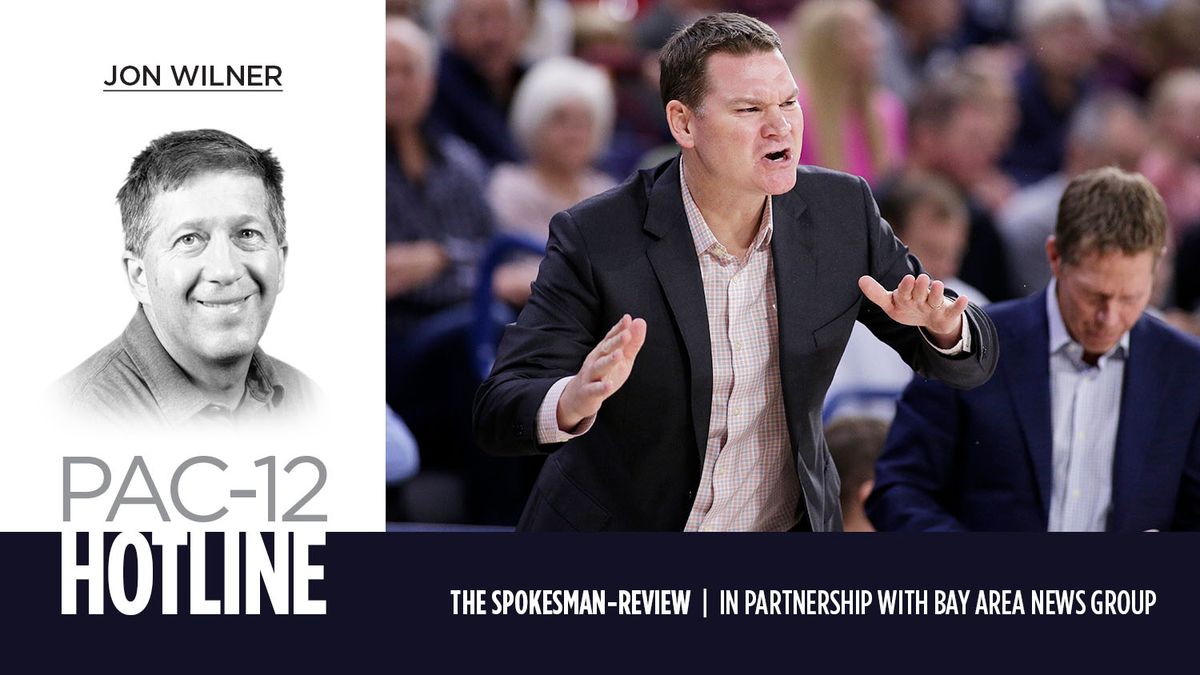Commentary: In hiring Tommy Lloyd, Arizona again uses different model than its peers

Go ahead, pick your timeframe, any timeframe:
•1,296 days since Book Richardson was arrested
•173 days since the Notice of Allegations arrived
•44 days since the season ended
•Seven days since Sean Miller was fired
And now, finally, mercifully, the Arizona Wildcats have moved forward.
The Wildcats on Wednesday announced the hiring of Tommy Lloyd, ending a 3½-year circus that would have made Odysseus himself long for the comfort of his couch, a cold beer and the remote control.
Not only did Arizona appoint a coach and turn the page, it succeeded in cornering the market.
As we’ll explore, the Wildcats continue to use a hiring model that their peers purposefully avoid.
Arizona president Robert Robbins, who managed the process with anything but surgical precision, and athletic director Dave Heeke, who spends an inordinate amount of time serving as a heat shield for his boss, have entrusted their primary revenue generators to career assistants with zero ties to the school.
That’s less common than you might think.
Across the 24 football and men’s basketball coaching positions in the Pacific-12 Conference, only three are occupied by coaches with no prior experience running a program or no connections to the school.
The Wildcats employ two of the three: Lloyd and Jedd Fisch, who was hired in December.
The third is Washington basketball coach Mike Hopkins.
The 21 other coaches in the conference’s marquee sports all were
•Head coaches elsewhere, like Dana Altman and Mick Cronin, Herm Edwards and Chip Kelly
•Assistants with the program, like Justin Wilcox and Jimmy Lake, Kyle Whittingham and Clay Helton
•Alums of the school employing them as head coach, like Oregon State’s Jonathan Smith or
•A combination of the above, like David Shaw and Mario Cristobal
Only Lloyd, Fisch and Hopkins, whose program has cratered after early success, are none of the above.
That seems relevant.
Former players have a passion for the program that can only come with owing your career to it.
Former assistants have an understanding of what works that can only come with recruiting to the school and guiding players through the challenges.
Sitting head coaches have a wisdom that can only come with making final decisions on key issues, managing people under difficult circumstances and calling plays under pressure.
For all Lloyd’s experience at Gonzaga, for all the responsibility he held over the years, it has always been Mark Few’s program – and there’s simply no getting around that.
Hire a career assistant, and you don’t know if it will work because it hasn’t.
Hire a proven winner, and you know it can work because it has.
Twice in the past four months, Arizona has taken on enhanced risk and uncertainty. Given the current state of the Wildcats’ money makers, that strikes us as a precarious strategy.
To be clear, and fair, the two programs are not identical.
You can see the faint outlines of a reasonable explanation for hiring Fisch, because Arizona football is a difficult job – one of the two or three toughest in the Pac-12.
But Arizona basketball is one of the top 12 or 15 programs in the country.
In our opinion, the Wildcats should never, ever hire anyone but a proven winner, unless there’s a deep commitment to staying within the family.
Robbins and Heeke obviously didn’t like those options – Damon Stoudamire was the best, by far, but apparently not good enough – so they went with an external candidate, like several other schools in the current hiring cycle.
Except Arizona’s brass didn’t follow the same path as other schools.
Texas hired Chris Beard, who recently took Texas Tech to the Final Four.
Oklahoma hired Porter Moser, who recently took Loyola Chicago to the Final Four.
And Utah hired Craig Smith, who won 74 games in three years at Utah State.
All three schools picked proven winners.
Arizona, the best program of them all, did not.
Granted, Robbins and Heeke had limited options because of the looming NCAA sanctions and the timing of the search.
Put another way: You reap what you spend 3½ years sowing.
Process aside, the end result in Tucson was the selection of the chief lieutenant from an elite program, a highly respected 46-year-old with no known compliance issues and a long history of recruiting success.
(Quick aside: Gonzaga has relied heavily on international players and transfers, not on the Southern California high school pipeline. We wonder about the degree to which Arizona will continue to recruit the region that has been its lifeblood over the decades.)
Here at the Hotline, Lloyd’s move into the Pac-12 has sparked both the need for context and a desire for judgment.
On the latter matter, a pause is in order. We typically wait three years to render verdicts on coaching hires, and Lloyd’s timeline might be pushed to four if the NCAA hammer falls.
But on the former matter, the need for context, we churned forward and eventually found the light.
I shall leave you with this, Arizona fans …
In the modern era of March Madness (i.e., starting in 1985, when the tournament field expanded to 64 teams), only 13 schools have won a national championship and made at least four appearances in the Final Four:
North Carolina, Duke, Kentucky, Kansas, UCLA, Michigan State, Louisville, Syracuse, Michigan, Connecticut, Villanova, Florida and Arizona.
That, folks, is three-plus decades of college basketball royalty.
The bluest bloods.
The biggest brands.
How many are entrusting their cherished programs to coaches with no previous ties to the school and no prior head coaching experience?
Only one.